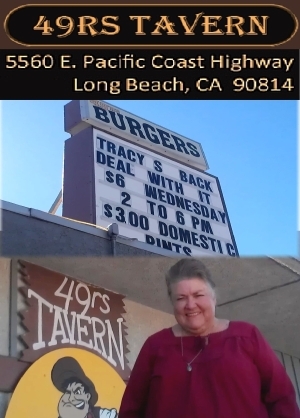A number of cities including the City of LB (LBREPORT.com coverage here) and some county governments opposed SB 828 as currently written. Development interests supported SB 828. Some Committee members voiced concerns that SB 828 applies a "one size fits all" approach to small and large cities, but ultimately voted to advance SB 828 saying they would watch what subsequent amendments ultimately produce.
SB 828 would change SCAG's current RHNA numbers from state mandated "goals" for cities to incorporate into their local land use planning documents into de facto required outcomes, with any "deficiencies" in actually produced "needed" housing units rolled over to increase the number of housing units that a city must produce in subsequent planning periods. That outcome could make it more difficult for some cities (already assigned high "needed" numbers) to meet the requirements of SB 35 (a bill authored by Sen. Wiener and enacted in 2017) that now requires cities to give "streamlined" approval to housing developers for multi-unit housing projects if a city hasn't met meet "needed" housing units.
Sen. Wiener said the current RHNA system is "broken," citing outcomes that assigned some cities (including Redondo Beach) over a thousand "needed" new housing units while neighboring cities of similar size were assigned only a handful of housing units. (Beverly Hills was assigned 3 low income units over eight years.)
Sen. Ben Allen (D, Redondo Beach) voiced concern over SB 828 "doubling-down" and penalizing cities that had planned for low/very low income housing but for various reasons didn't meet those goals. The League of CA Cities remained neutral on SB 828, saying at hearing that it's open to working with Wiener to address issues on the bill.
Sen. Wiener agreed to amendments suggested by Committee staff in its legislative analysis, agreed to reduce required housing units from 200% to 125% of RHNA (with his stated goal of 150%) and repeatedly indicated that he's willing to have "conversations" and discuss other changes to his bill to deal with issues raised at the Committee, but offered no specifics.
SB 828 now heads to the state Senate's Appropriations Committee, a "non-policy" committee that's supposed to consider only fiscal impacts of proposed bills but as a practical matter operates as a majority-party controlled "gatekeeper" preventing bills from reaching the Senate floor if not supported by majority party (Dem) leadership. The Appropriations Committee is chaired by state Senator Ricardo Lara (D, LB-Huntington Park).
Developing.
Sponsor | Sponsor |
Sponsor |  |
Sponsor | Sponsor |
 | Sponsor |
blog comments powered by Disqus
Recommend LBREPORT.com to your Facebook friends:
Follow LBReport.com with:
RSS |
Contact us: mail@LBReport.com





Hardwood Floor Specialists
Call (562) 422-2800 or (714) 836-7050
